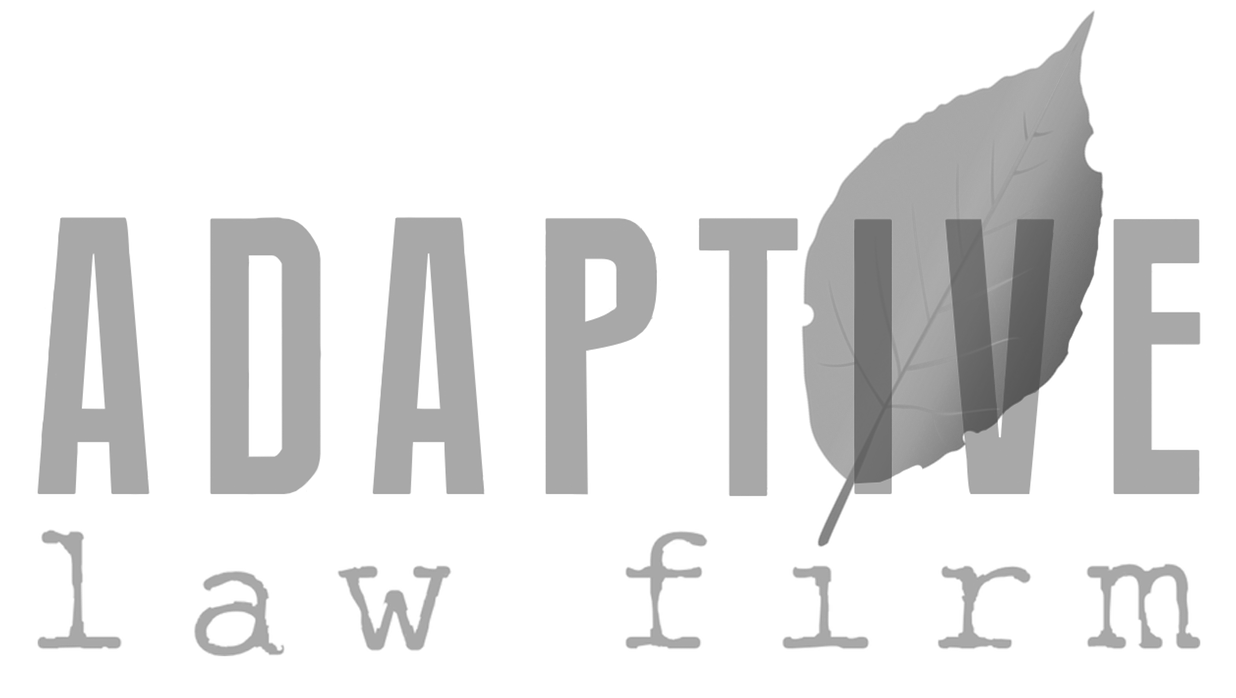Do We Need a Guardian?
A Guardian and Conservator is someone who is appointed by the court to advocate and help make decisions for a person who is unable to effectively manage their own health or financial affairs.While the Guardian and Conservator are technically two different roles—with the Guardian handling health and personal matters and the Conservator handling financial matters—they are often held by the same person.
For ease of reading, I refer to both the guardian and conservator as simply “the Guardian”, unless there’s a need to distinguish between the two. I also focus solely on adult guardianships here, meaning a guardianship for someone who is 18 years or older. While some of the concepts will apply to both minor and adult guardianships, the two types of guardianships are unique and governed by different sets of laws.
So, the big questions …
Why might someone need a guardian?
In some cases, a person might need a guardian because they lack the intellectual capacity to understand and execute a power of attorney document. In other cases, a person may have executed a power of attorney, but it’s now failing for some reason. This could be because the people they named in their power of attorney (their “agents”) are no longer living or are unable to serve for another reason. Or, the power of attorney may not have been properly executed, or it may not grant their agent enough authority. In yet other (but less frequent) cases, a person might need a guardian because—although they are capable of executing a power of attorney—they may be overly susceptible to exploitation or abuse.*
Who can serve as a guardian?
Generally any adult (in this case, 21 years or older) can serve as the guardian of an adult. A criminal conviction involving dishonesty, neglect or physical force (or a bankruptcy) may prohibit someone from being appointed as guardian or conservator, but the courts will consider the circumstances and may decide that someone is qualified to serve as guardian despite the conviction or bankruptcy. In most cases, the guardian is a parent, child, sibling, friend, or other person connected to the adult in a meaningful way. However, if there’s not an appropriate family member or friend, the court can also appointed a certified professional guardian or certain financial institutions.
How is a guardian appointed?
In Washington state, guardians and conservators are appointed by the superior court in the county where the individual needing the guardian resides. The process is started when someone files a petition with the court requesting that either they or someone else be appointed as guardian. The court then appoints a neutral “court visitor” (previously referred to as a guardian ad litem) to assess the situation and report back to the court on whether (a) a guardianship is needed; and (b) the proposed guardian is the appropriate person (or entity) to serve as guardian. The court visitor will also consider whether there’s a “less restrictive alternative” (such as a power of attorney) that could take the place of the proposed guardianship. A professional evaluation will also be conducted by a physician or other appropriate health care provider and considered by the court visitor in their report. If all goes smoothly, the reports are filed with the court, then a hearing is held in front of the judge or commissioner and the guardian is appointed.
Who pays for the guardianship?
This is actually a two part question, the first being who pays for the appointment of the guardian, and the second being who pays the guardian for their services once they have been appointed (if they are requesting payment).
The fees associated with requesting the appointment of a guardian include the court filing fee, the attorney’s fee for navigating you through the process (if you’re using one), and the court visitor fee. Let’s break these down one by one.
Court Filing Fees
The court filing fee (typically in the $240-$270 range) can be waived if the person subject to the guardianship has less than $3,000. Otherwise, it will be paid by either the person requesting the guardianship or potentially from the estate of the individual in need of a guardian.
Attorney Fees
The attorney’s fees will vary depending on the attorney—both in terms of how much is charged, and the payment arrangements. For our office though, we do require a base fee to be paid up front—usually by the client from their own funds.
Court Visitor Fees
The court visitor fees are typically paid from the estate of the person needing the guardian, or—if their assets are under $3,000—you can request that the county pay the court visitor fee. There are pros and cons to this, which I recommend discussing with an attorney familiar with the local court visitors.
Reimbursement of Fees
For all of these fees though, keep in mind that you—if you are the one asking for the guardianship—may not have access to the individual’s assets at this point, so even if the fees are ultimately approved by the court to be paid from the estate, you may still need to pay the expenses up front and ask to be reimbursed once the guardian is appointed.
Fees for Guardian Services
As for who pays for the guardian’s services once they are appointed, this will typically come from the individual’s estate, and will be capped in the case of DSHS cases. Not all guardians are paid though. A certified professional guardian will certainly charge a fee for their service, but a family member—especially a parent—will often waive their right to any fees. Any payment arrangements should be worked out during the guardianship proceeding.
How do I get started?
If you are attempting to request a guardianship on your own (without the assistance of an attorney), be aware there are specific forms and deadlines you will need to comply with—this article is not legal advice and is absolutely not sufficient guidance. A good starting point is the Washington State Court’s Guardianship Portal. Many counties also have a guardianship facilitator or guardianship monitoring program that cannot provide legal advice but can be invaluable in answering questions about the forms and process.
If you are located in northwest Washington (including Skagit, Whatcom, Snohomish, San Juan and Island Counties), we invite you to schedule a video consultation with attorney Hollie Del Vecchio. You’ll need to Take Our Quiz to get things started, and there is a $300 fee (which will be applied to your invoice if you hire us), but we will do everything we can to answer your questions and make the process easy and transparent.
If you need to locate an attorney in another part of Washington state, you can start with the Washington State Bar Association’s legal directory and search for guardianship attorneys. Regardless of the route you take, we wish you and your loved one all the best and hope for a smooth process.
———-
*In these cases, a guardianship is often preferred because it is more protective than a power of attorney. Under a power of attorney, the person who executed the document is “sharing” their powers with the person named as their agent. Under a guardianship arrangement, the person subject to the guardianship loses some or all of their powers and they are essentially transferred to (rather than shared with) the agent.

